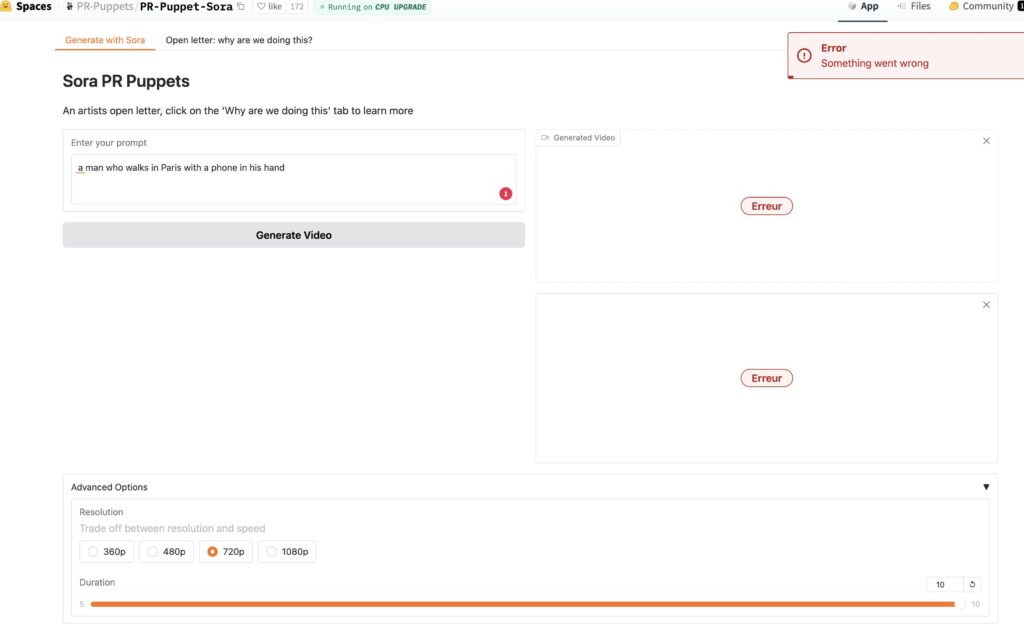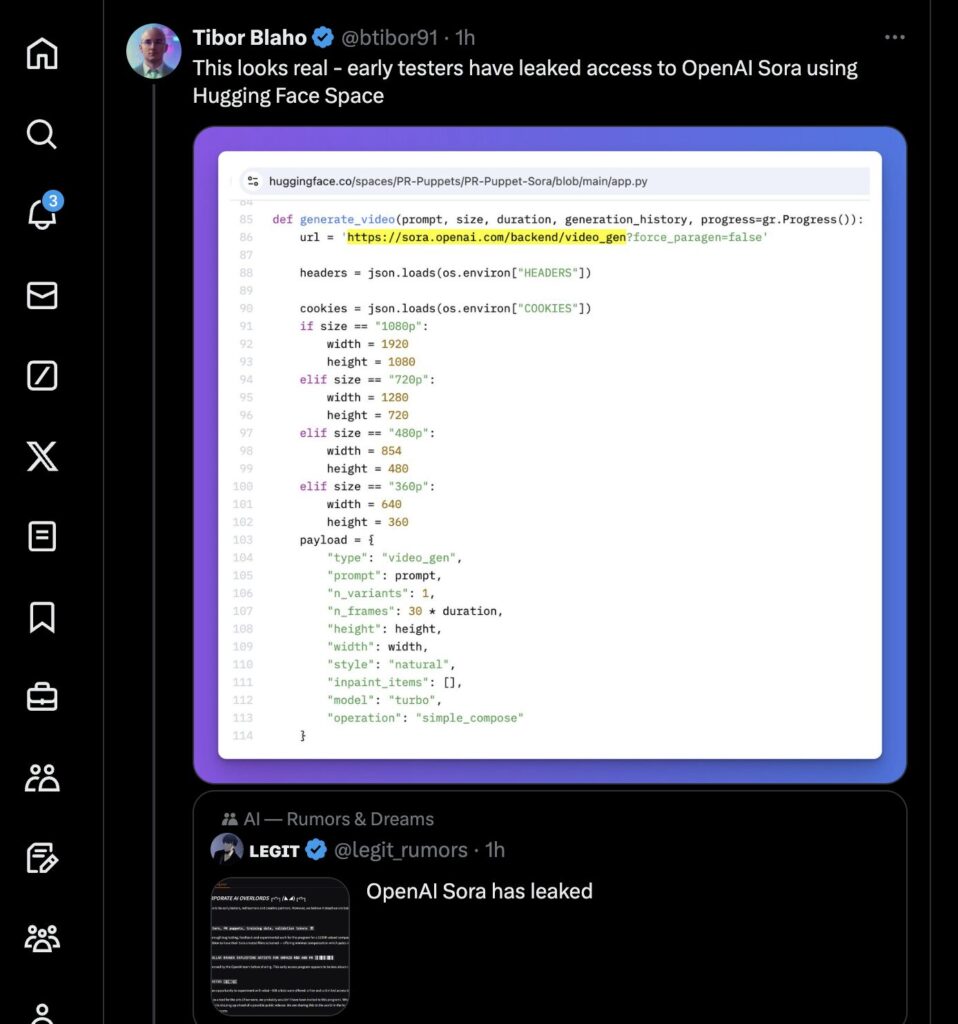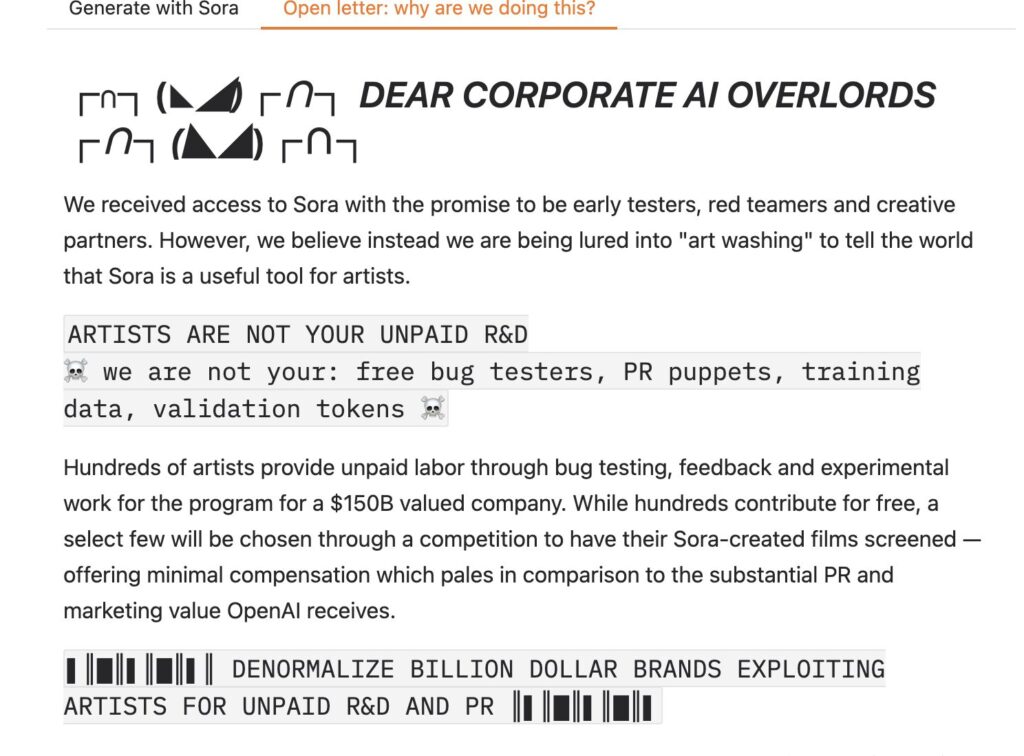Presented in February 2024, Sora is an artificial intelligence capable of generating ultra-realistic videos from a prompt. A group of artists, who would have had access to the model in advance, would be at the origin of an unprecedented leak for OpenAI. A pirated version of the model is circulating online.
Bad news for OpenAI: Sora, the ambitious realistic video generator announced in February 2024, may well have been hacked.
On HuggingFacethe community site on which all the major groups publish their models, a collective called PR-Puppet-Sora has published a tool which allows you to generate videos with the Sora API, which is currently not accessible from the large audience. He accuses OpenAI of wanting to treat artists as puppets, hence its desire to sabotage its plans by publishing access to the model. On social networks, several new videos generated by Sora appeared on November 26, with a style very close to the February demo.

OpenAI victim of a revenge story? Sora public for the first time
Is the leak authentic? According to the site code, the answer is yes. The prompts are indeed sent to the OpenAI servers, which were until then inaccessible to the general public. The company deactivated its API around 6 p.m. on November 26, three hours after the tool first appeared (and following initial media reports). It is now impossible to generate videos, although many examples have already been published.


Technically speaking, it wasn’t Sora’s code that leaked, but just his access.
OpenAI likely offered an early preview of its tool to a few partners, including artists, in order to improve the reliability of its product. These artists have hijacked their private access to make Sora accessible to everyone, but do not have direct access to OpenAI’s servers. It’s just an API and a private access key.
In an open letter published on HuggingFace, the collective explains “received access to Sora with the promise of being early testers, red teamers and creative partners. In reality, we believe this is a process of “art laundering” to make the world believe that Sora is a useful tool for artists.”


“ARTISTS ARE NOT YOUR UNPAID R&D” explain the artists. “We are not your bug testers”. The collective calls for using open source solutions and refusing to allow a large group like OpenAI to drive the future of video.
Several videos generated by Sora available online
Private access to the famous collective’s Sora API was quickly disconnected, but several Internet users managed to generate videos in time. The leaked model is called “Turbo”, which suggests that it is a version with fewer settings, for results designed quickly.
Since the announcement of Sora, OpenAI has no longer communicated about the tool. The American election would have notably called on him to be cautious, to prevent his service from being used to do evil. The creator of ChatGPT knows that he must not go too quickly, both to avoid bad buzz and not to offend the artists.
After this leak, OpenAI will probably be forced to react. Sam Altman’s company may say more about Sora’s future, even if his connection with the artists gets off to a rocky start.
Source: www.numerama.com


